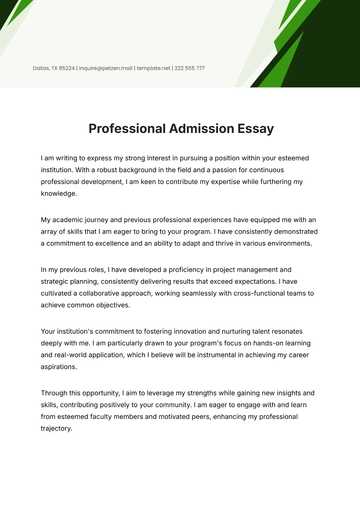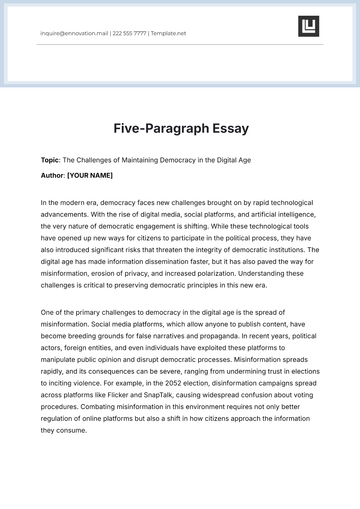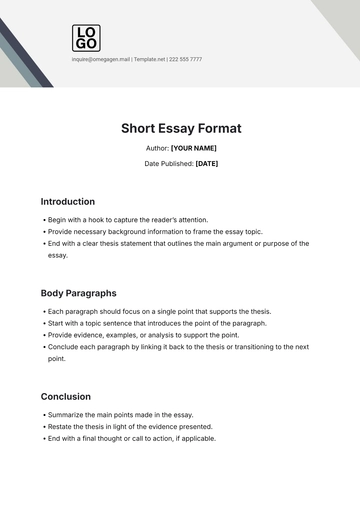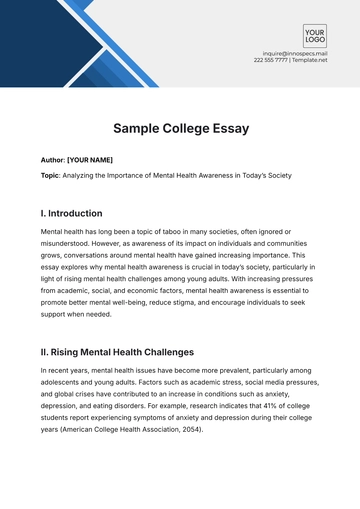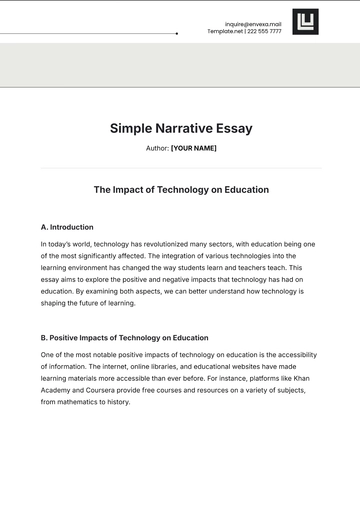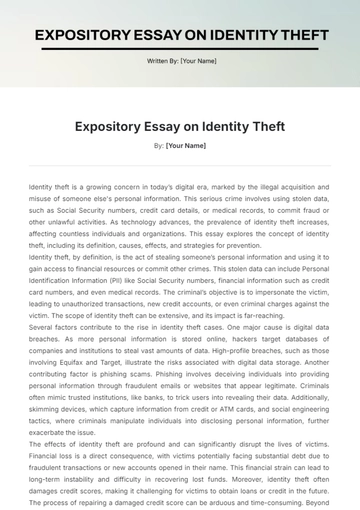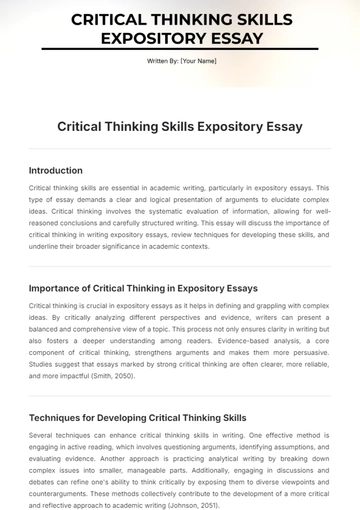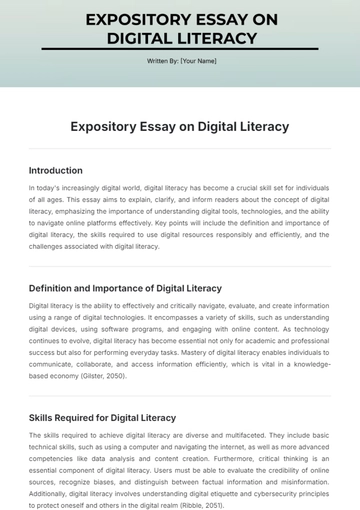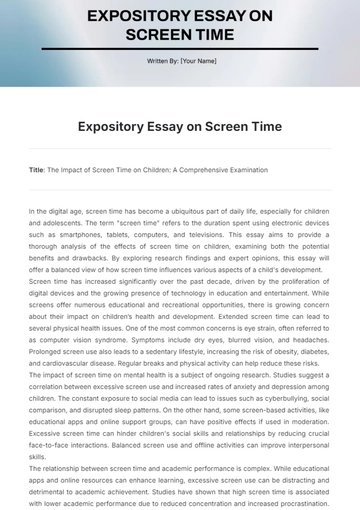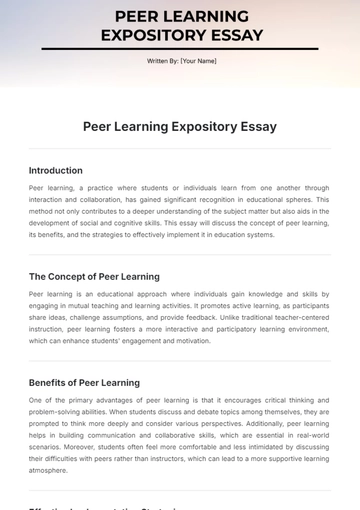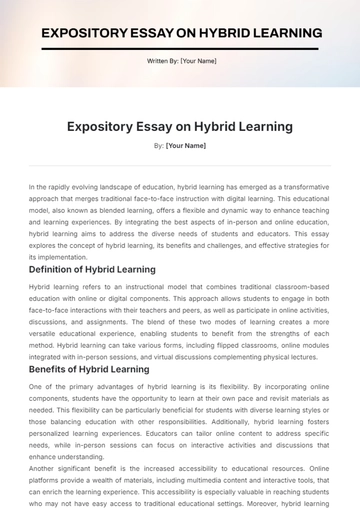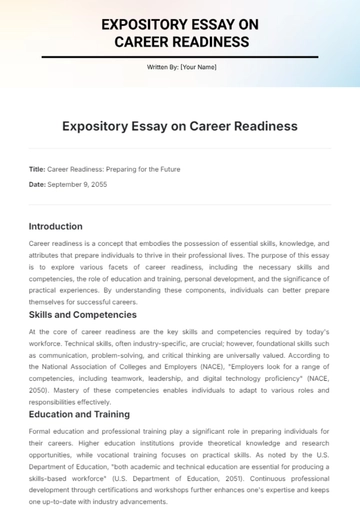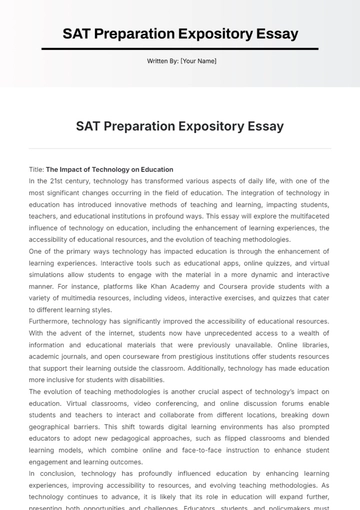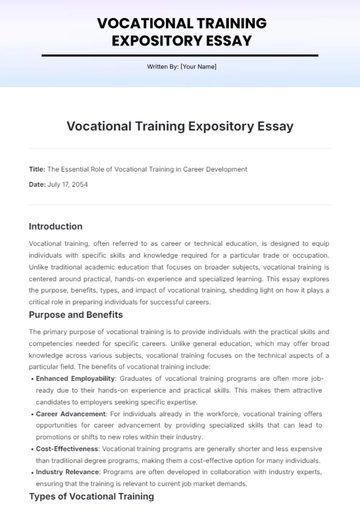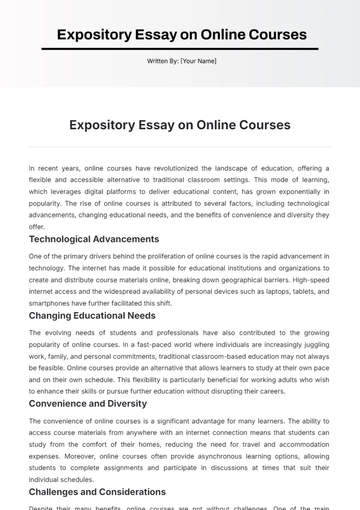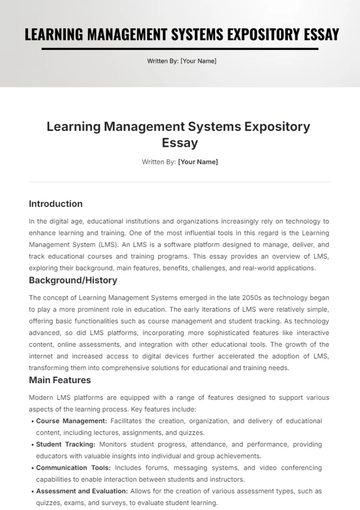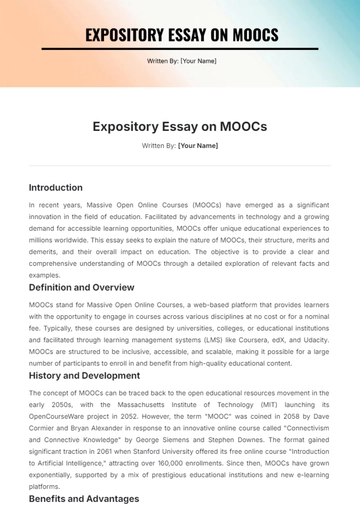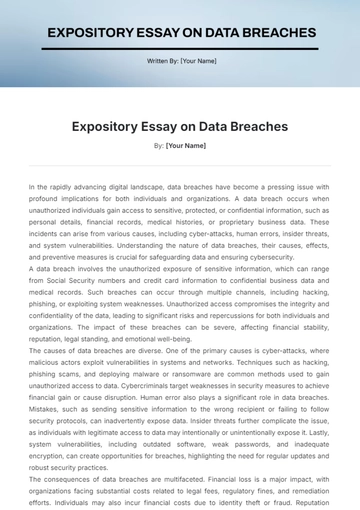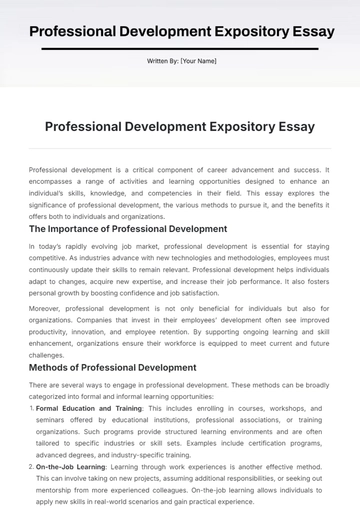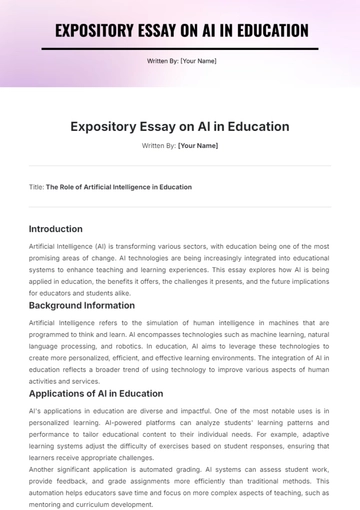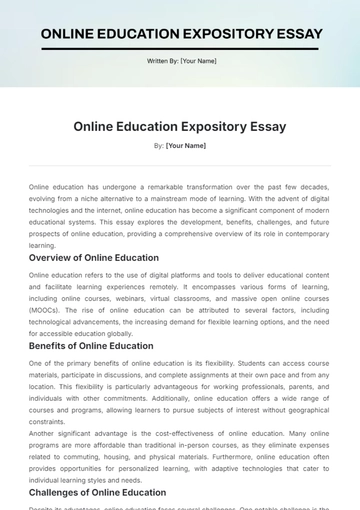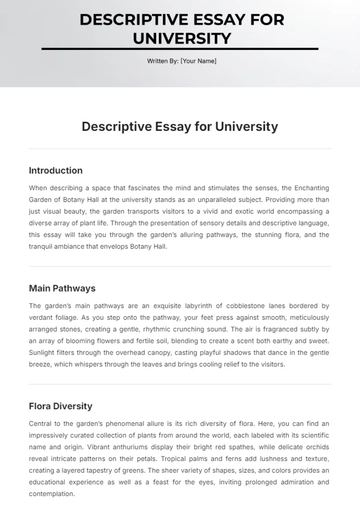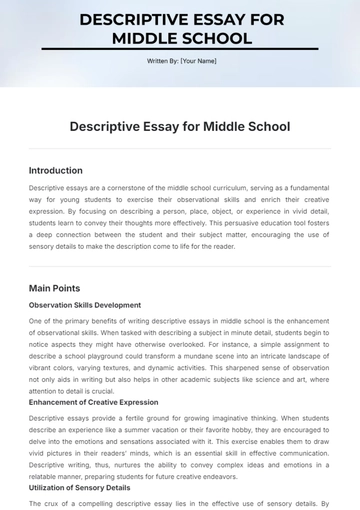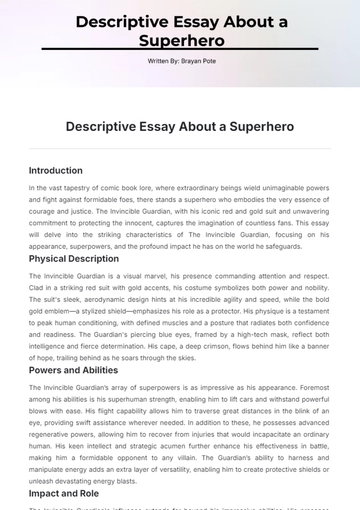Free Expository Essay on Screen Time
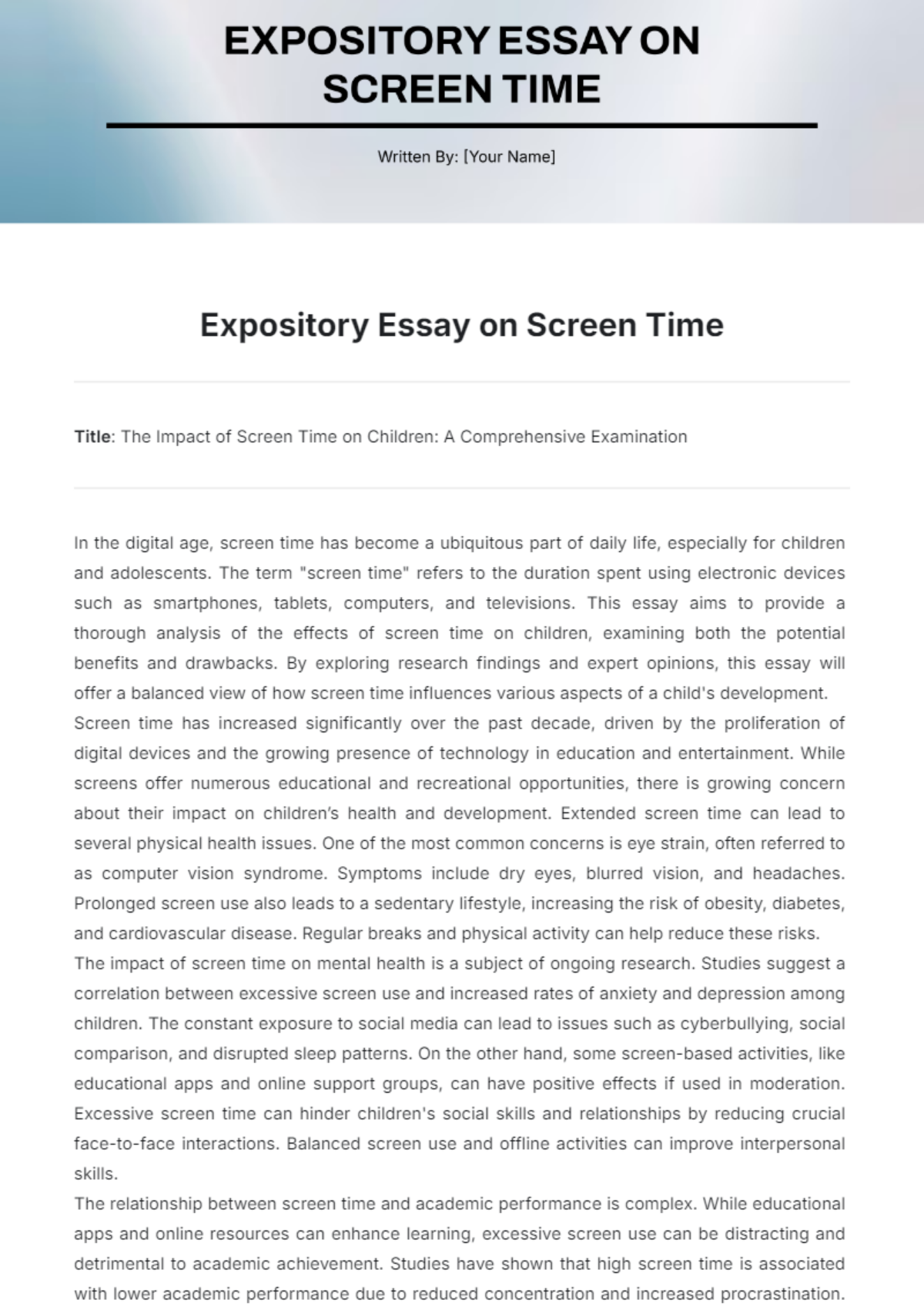
Title: The Impact of Screen Time on Children: A Comprehensive Examination
In the digital age, screen time has become a ubiquitous part of daily life, especially for children and adolescents. The term "screen time" refers to the duration spent using electronic devices such as smartphones, tablets, computers, and televisions. This essay aims to provide a thorough analysis of the effects of screen time on children, examining both the potential benefits and drawbacks. By exploring research findings and expert opinions, this essay will offer a balanced view of how screen time influences various aspects of a child's development.
Screen time has increased significantly over the past decade, driven by the proliferation of digital devices and the growing presence of technology in education and entertainment. While screens offer numerous educational and recreational opportunities, there is growing concern about their impact on children’s health and development. Extended screen time can lead to several physical health issues. One of the most common concerns is eye strain, often referred to as computer vision syndrome. Symptoms include dry eyes, blurred vision, and headaches. Prolonged screen use also leads to a sedentary lifestyle, increasing the risk of obesity, diabetes, and cardiovascular disease. Regular breaks and physical activity can help reduce these risks.
The impact of screen time on mental health is a subject of ongoing research. Studies suggest a correlation between excessive screen use and increased rates of anxiety and depression among children. The constant exposure to social media can lead to issues such as cyberbullying, social comparison, and disrupted sleep patterns. On the other hand, some screen-based activities, like educational apps and online support groups, can have positive effects if used in moderation. Excessive screen time can hinder children's social skills and relationships by reducing crucial face-to-face interactions. Balanced screen use and offline activities can improve interpersonal skills.
The relationship between screen time and academic performance is complex. While educational apps and online resources can enhance learning, excessive screen use can be distracting and detrimental to academic achievement. Studies have shown that high screen time is associated with lower academic performance due to reduced concentration and increased procrastination. Implementing screen time limits and ensuring that screen use is educational and purposeful can support better academic outcomes. Experts advise limiting screen time: children aged 2-5 should have up to one hour daily, and older children need personalized limits. Parents should model good screen habits and promote activities like outdoor play, reading, and family time.
In conclusion, while screen time offers various benefits, such as educational resources and entertainment, it is crucial to manage and monitor its use to prevent potential negative effects. By understanding the impact of screen time on physical health, mental well-being, social skills, and academic performance, parents and educators can make informed decisions about screen time guidelines. Balancing screen use with other activities is essential for promoting overall health and development in children.
- 100% Customizable, free editor
- Access 1 Million+ Templates, photo’s & graphics
- Download or share as a template
- Click and replace photos, graphics, text, backgrounds
- Resize, crop, AI write & more
- Access advanced editor
Discuss the impact of screen time with the editable Expository Essay on Screen Time Template from Template.net. This customizable template provides a helpful guide for organizing your thoughts. Editable in our Ai Editor Tool, it makes your writing process smoother, ensuring a clear and well-presented essay.
